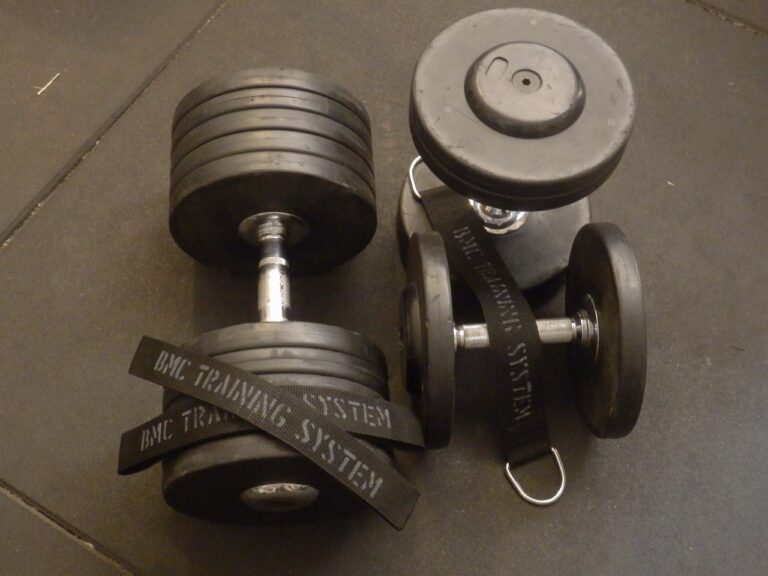The Role of Nutrition in Brain Health and Cognitive Function
Nutrition plays a vital role in maintaining optimal brain health and cognitive function. The brain is a complex organ that requires a variety of nutrients to function properly. In this article, we will explore the impact of nutrition on brain health and cognitive function, as well as the best foods and supplements to support brain health.
Understanding Brain Health and Cognitive Function
Brain health refers to the overall well-being of the brain, including factors such as memory, concentration, problem-solving skills, and mood. Cognitive function, on the other hand, refers to the ability of the brain to process information, learn new things, and make decisions. Both brain health and cognitive function are influenced by a variety of factors, including genetics, lifestyle, and nutrition.
The Impact of Nutrition on Brain Health
Nutrition plays a crucial role in supporting brain health. A diet rich in essential nutrients can help protect the brain from age-related decline, reduce the risk of cognitive decline, and improve overall cognitive function. By providing the brain with the nutrients it needs to function optimally, you can support memory, concentration, and mental clarity.
Essential Nutrients for Brain Health
There are several key nutrients that are particularly important for brain health and cognitive function. These include:
1. Omega-3 Fatty Acids
Omega-3 fatty acids, found in fatty fish such as salmon and mackerel, are essential for brain health. These fatty acids are crucial for maintaining the structural integrity of brain cells and promoting communication between brain cells. Omega-3 fatty acids have been linked to improved memory, concentration, and overall brain function.
2. Antioxidants
Antioxidants, found in fruits and vegetables, help protect the brain from oxidative stress and inflammation. Oxidative stress and inflammation can contribute to the development of neurodegenerative diseases such as Alzheimer’s and Parkinson’s. By consuming a diet rich in antioxidants, you can support brain health and reduce the risk of cognitive decline.
3. Vitamin B12
Vitamin B12 is essential for brain health, as it plays a key role in the production of neurotransmitters and the maintenance of myelin, a fatty substance that insulates nerve cells. A deficiency in vitamin B12 can lead to cognitive decline, memory loss, and mood disturbances. Good dietary sources of vitamin B12 include meat, fish, eggs, and dairy products.
The Best Foods for Brain Health
In addition to consuming key nutrients for brain health, it is important to eat a balanced diet that includes a variety of foods that support cognitive function. Some of the best foods for brain health include:
1. Leafy Greens
Leafy greens such as spinach, kale, and collard greens are rich in vitamins, minerals, and antioxidants that support brain health. These vegetables are packed with nutrients that protect brain cells from damage and promote cognitive function.
2. Berries
Berries such as blueberries, strawberries, and blackberries are high in antioxidants that protect the brain from oxidative stress and inflammation. Berries have been linked to improved memory, concentration, and overall brain function.
3. Nuts and Seeds
Nuts and seeds are excellent sources of omega-3 fatty acids, antioxidants, and vitamins that support brain health. Walnuts, almonds, flaxseeds, and chia seeds are particularly beneficial for cognitive function.
Supplements for Brain Health
In addition to eating a diet rich in nutrients that support brain health, some people may benefit from taking supplements to enhance cognitive function. Some of the best supplements for brain health include:
1. Fish Oil
Fish oil supplements are a rich source of omega-3 fatty acids, which are essential for brain health. Fish oil has been shown to improve memory, concentration, and overall cognitive function.
2. Vitamin D
Vitamin D is important for brain health, as it plays a role in neuroprotection and cognitive function. Some studies suggest that vitamin D deficiency may be linked to an increased risk of cognitive decline.
3. Ginkgo Biloba
Ginkgo biloba is an herbal supplement that has been used for centuries to improve memory and cognitive function. Some studies suggest that ginkgo biloba may help protect against age-related cognitive decline.
FAQs
Q: Can nutrition really impact brain health?
A: Yes, nutrition plays a crucial role in supporting brain health. A diet rich in essential nutrients can help protect the brain from age-related decline, reduce the risk of cognitive decline, and improve overall cognitive function.
Q: What are the best foods for brain health?
A: Some of the best foods for brain health include leafy greens, berries, nuts, seeds, fatty fish, and whole grains. These foods are rich in nutrients that support cognitive function and protect brain cells from damage.
Q: Are supplements necessary for brain health?
A: While supplements can be beneficial for some people, it is important to focus on eating a balanced diet that includes a variety of foods that support brain health. Supplements should not replace a healthy diet but can be used to enhance cognitive function.
By prioritizing nutrition and consuming a diet rich in essential nutrients, you can support brain health, protect against cognitive decline, and improve overall cognitive function. Incorporating brain-boosting foods and supplements into your daily routine can help you maintain optimal brain health and cognitive function as you age.







